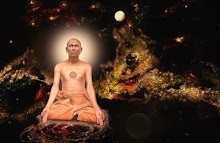
Karmanyeva adhikaraste ma phaleshu kadachana
Ma karmaphalahetur bhurma te sangostvakarmani.
which can be translated into something like this: (not literally)
Do your Duty and Leave the Rest to God
To my knowledge,the full essence of the above phrases goes something like this:
Do your duty but never expect the result because the result is nothing but a mirage. It’s plain Maya. When you get caught in the aftermath, you live in the world( which, philosophically speaking, is itself an illusion) of Maya.
A person who calculates the results of his action becomes selfish. Normally, the human mind always has a ready question like “Why is it wrong to expect the results of action I have worked hard for?” for the above sentence. Now, asking the first question “What am I working hard for?” will drive you to finding the ultimate truth. Other people and I can’t of course answer that question for you
Okay, that tells me you’re still not convinced! ( By the way, I am not here to convince people. I am just helping people feed their hungry minds) Time for me to delineate even further.
When people start expecting the results, they become restless and lose their calm. Their sense of equanimity vanishes and is replaced by Rajas. The Rajas quality creates attachment and selfishness. Due to this behavior, they rely on the outcome of their deeds expecting things in return. Now, when what they’ve expected doesn’t turn out well, they become angry. Or what they done doesn’t give them the desired results, they become dissatisfied. Anger is the main characteristic of the Rajas Guna. When they turn angry, they are tempted by the Rajas Guna to seek materialistic pursuits with a sense of vengeance. Thus, they lose their minds. It is at this point they turn materialistic and lose themselves to Maya.
If you had an eye for details, you would notice that Lord Krishna doesn’t say ” Don’t do your duty”. He says “Do your duty but don’t expect the outcome” . Isn’t this a solid proof to let people know that our Sanatana Dharma indeed allows the concept of Free Will? Yes! We are fortunate enough to do what we want but don’t have control over the results!


No comments:
Post a Comment